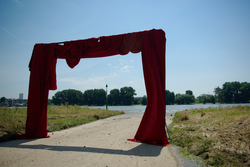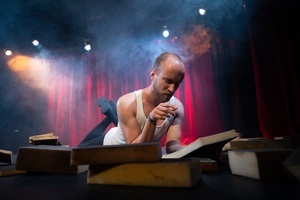In the organizer's words:
in the revised version by Thomas Birkmeir
DRAMEDYS
recommended for ages 14 and up
Thomas Birkmeir's revised version, which was only published in 2023, modernizes the conflicts that were still somewhat different in 1891 (publication date): Wendla wants a tattoo, which leads to an argument with her mother, who tries to protect her while imposing her own contradictory views. Moritz struggles with the pressure his parents and school put on him, as well as his own fears and insecurities about sexuality and the future. Melchior questions social norms and stands by Moritz, while he himself struggles with his inner conflicts, but also likes to numb them with pills.
In her production, Aliena Wagner sheds light on the tensions between the generations and explores how to find your way in a world that often doesn't take you seriously.
"I don't want to disappoint anyone. Not my mother, not my father - not me. But I just can't do it. I already feel like a failure if I can't find a place to park my bike outside school. And then: soft skills - hard skills: learning skills, social skills, media skills, technical skills, creativity skills, analytical skills, problem-solving skills!"
The original work of Frank Wedekind's "Spring Awakening" was temporarily banned shortly after its publication due to its "obscenity". It deals with the themes of puberty, sexual awakening and the associated conflicts between adolescents and adults. The story follows a group of teenagers trying to find their place in a society that often misunderstands or ignores their questions and needs.
Sensitive content / content note:
The production addresses issues including violence/ sexualized violence, suicide, mental health crises, substance abuse, unwanted pregnancy/ abortion, bullying and the death of a child.
Strobe lighting is used.
Location
Location | Theater















